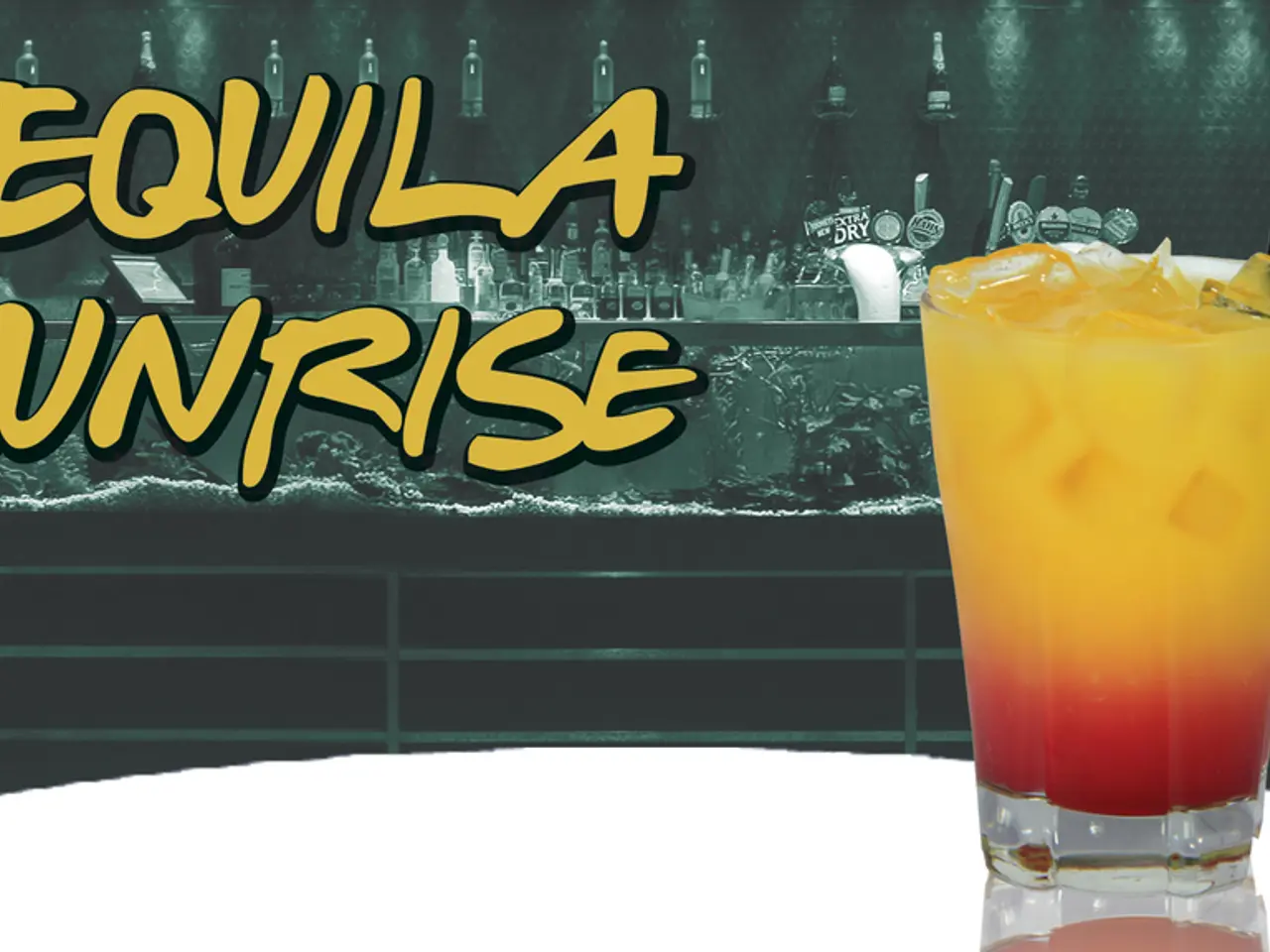Decrease in Alcohol Consumption Among Americans, According to Poll Results
The United States is experiencing a significant cultural and behavioral shift away from alcohol consumption, according to the latest Gallup poll. The rate of alcohol consumption among American adults has dropped to 54%, the lowest level since the polling began in 1939.
This decline is notable across various demographics, with a sharper decrease among women (down 11 percentage points since 2023 to 51%) compared to men (down 5 points to 57%), and among non-Hispanic white adults particularly.
The trend also extends to drinking frequency. Only 24% of drinkers reported having consumed alcohol in the past 24 hours, down from 32% two years ago, and the average number of drinks consumed in the past week per drinker has dropped to 2.8, the lowest since Gallup started recording this data in 1996.
This reduction in alcohol consumption correlates with a shift in perception about the health effects of drinking. For the first time since 2001, a majority (53%) of Americans surveyed believe that moderate drinking (one or two drinks per day) is bad for health, a steep increase from just 28% in 2018 who held negative views on alcohol's health impact.
The scientific consensus has also moved away from earlier views that moderate drinking could be beneficial; now alcohol is considered to carry health risks such as increased chances of cancer, depression, and anxiety—even at low levels of consumption—after controlling for confounding factors.
In summary, the data indicate a significant shift in American attitudes and behaviors towards alcohol consumption, driven in part by growing awareness of its health risks.
Meanwhile, global events continue to unfold. The European Union's top diplomat has called for a snap meeting of European foreign ministers ahead of a planned meeting between the Russian and US presidents. China Evergrande Group, the world's most indebted real estate firm, announced it will be delisted from Hong Kong's stock exchange, marking a landmark moment in China's years-long property crisis. The BRICS group of nations has coalesced into a tighter alliance in the face of Washington's tariff threats.
US President Donald Trump extended a trade truce with China, stabilizing economic ties between the two superpowers for another 90 days. However, trade talks between US and China failed to resolve broader sticking points on issues like rare earths and technology export controls. Washington is considering imposing tariffs over China's purchases of Russian oil.
Elsewhere, wildfires have spread across southern Europe, forcing thousands to flee their homes. A cholera outbreak in Sudan threatens the lives of tens of thousands of refugees. In Israel, the global isolation deepens due to its plan to take over Gaza City, and the Israeli strike on a hospital near Gaza City killed four Al Jazeera journalists.
As the world continues to navigate these complexities, the decline in alcohol consumption in the US offers a glimmer of hope for improved public health outcomes.
References:
- Gallup. (2025). Alcohol Consumption in U.S. Hits Record Low. Retrieved from https://www.gallup.com/poll/333638/alcohol-consumption-hits-record-low.aspx
- Gallup. (2023). Alcohol Consumption among Americans Drops to 60%. Retrieved from https://www.gallup.com/poll/332638/alcohol-consumption-americans-drops-60.aspx
- American Heart Association. (2022). Moderate Drinking is Bad for Your Health. Retrieved from https://www.heart.org/en/healthy-living/healthy-eating/alcohol-and-drug-resources/moderate-drinking-is-bad-for-your-health
- Centers for Disease Control and Prevention. (2021). Alcohol Use and Health. Retrieved from https://www.cdc.gov/alcohol/fact-sheets/alcohol-use.htm
- National Institute on Alcohol Abuse and Alcoholism. (2020). Alcohol Facts and Statistics. Retrieved from https://www.niaaa.nih.gov/alcohol-health/overview-alcohol-consumption/alcohol-facts-and-statistics
- In light of the declining alcohol consumption in the United States, there could be potential improvements in health-and-wellness outcomes, as indicated by the latest Gallup poll showing a record low rate of alcohol consumption among American adults.
- The shift in American attitudes towards alcohol consumption, driven by growing awareness of its health risks, coincides with an increase in the number of people prioritizing health-and-wellness, resulting in a reduced rate of alcohol consumption.




